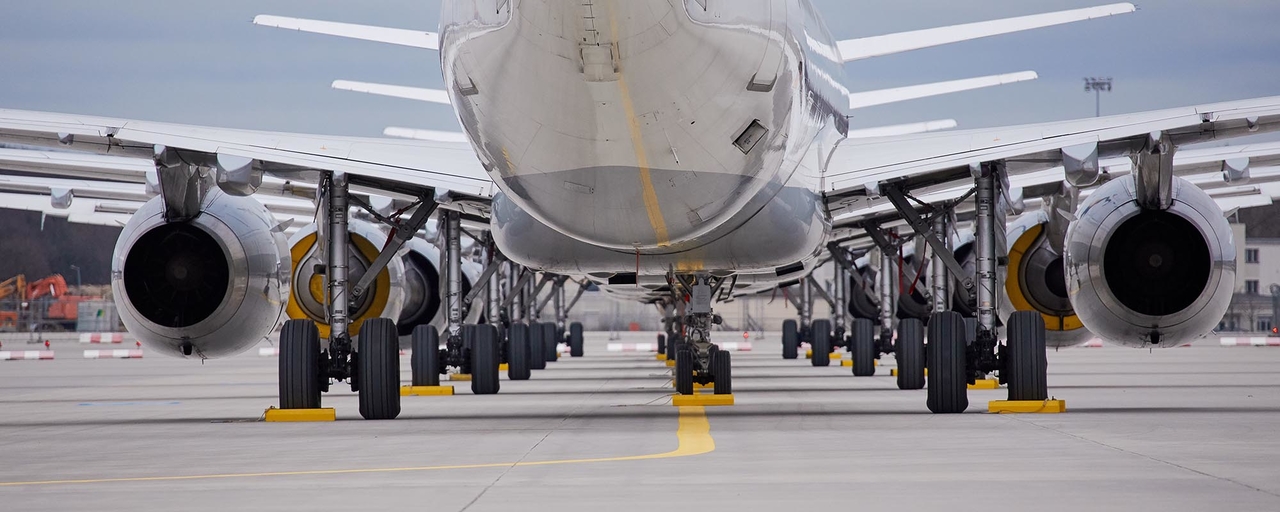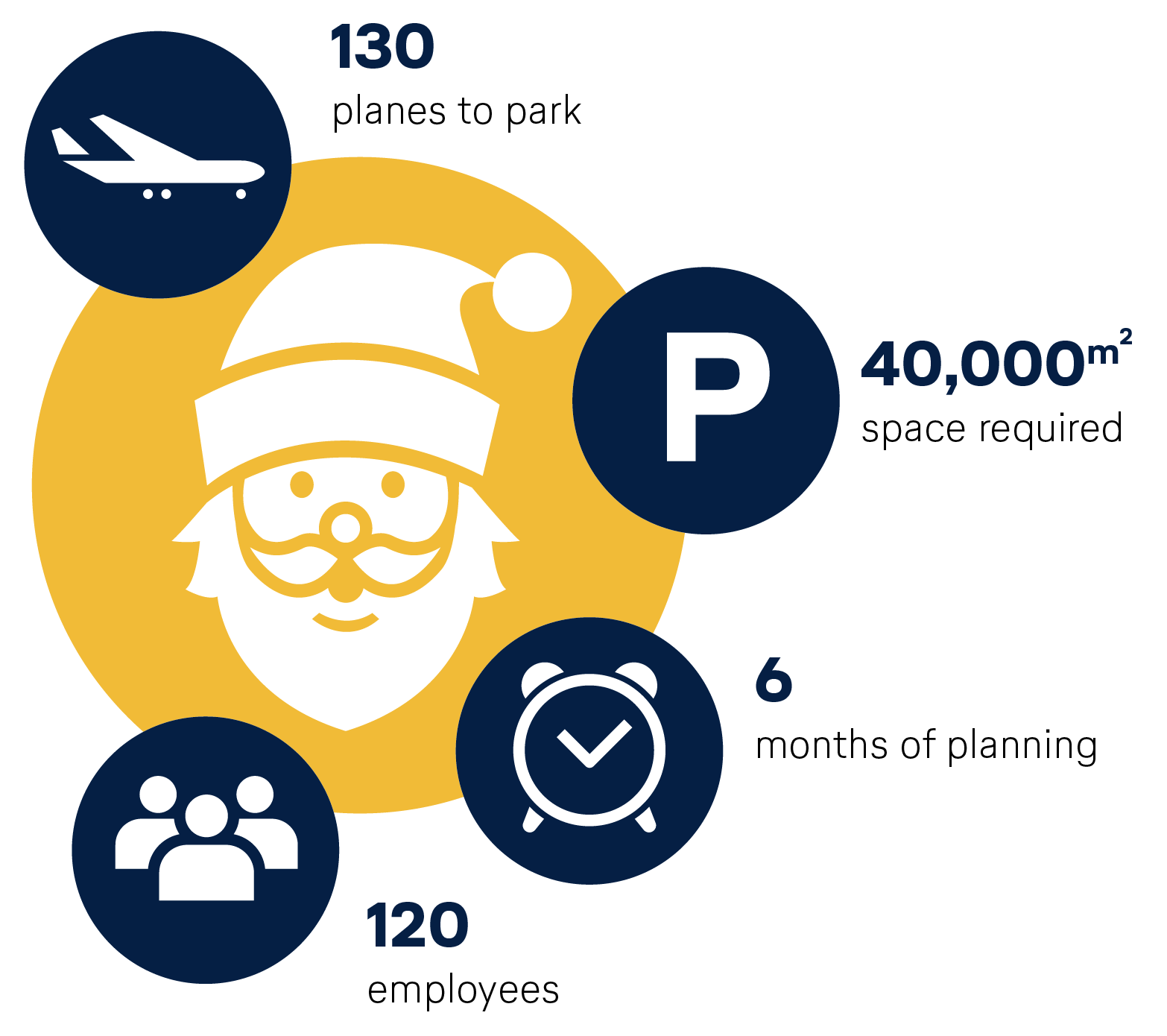Mr. Thon, is it not true that parked planes eat up money?
That’s certainly true on normal days, but Christmas Eve is a time when people would rather sit under a Christmas tree than on a plane. That’s when it pays to restrict the flight plan, rather than deal with near-empty planes.
Can you give us an idea of the size of this operation?
On 24th December, we’re going to be parking 44 long-haul and 90 short-haul aircraft at Frankfurt Airport. This will affect routes that are particularly demanded by business travellers. For example, flights to Bangalore in India or Boston in the US. In addition, we are pruning the European routes and flying, for example, to London only six times a day instead of twelve.
What’s so complicated about that?
The Lufthansa Group alone needs around 40,000 square meters more of parking space than usual. But, naturally, the airport doesn’t keep extra hectares of parking space at hand just for Christmas, which is why it’s going to be extremely cramped on the apron. And when dozens of planes are all lined up, the one at the front should be the first to leave again. The planning phase, which is orchestrated together with colleagues from Fraport, air traffic control and other airlines, starts six months earlier. On the days over Christmas, more than 120 colleagues, ranging from tractor drivers to technicians and marshallers, will be busy looking for spots to park the planes.
Will they be getting into the Christmas spirit?
I wouldn’t say so; there’s no time for that. But on New Year’s Eve, we like to talk about the “tractor ballet”. Between 1 a.m. and 6 a.m., nearly all aircraft tractors will be in action on the huge site, nearly all of them festively lit up, because the more than 100 aircraft parked there will be taking off again on 1st January. This is a real show of strength and it looks really great in the dark.

